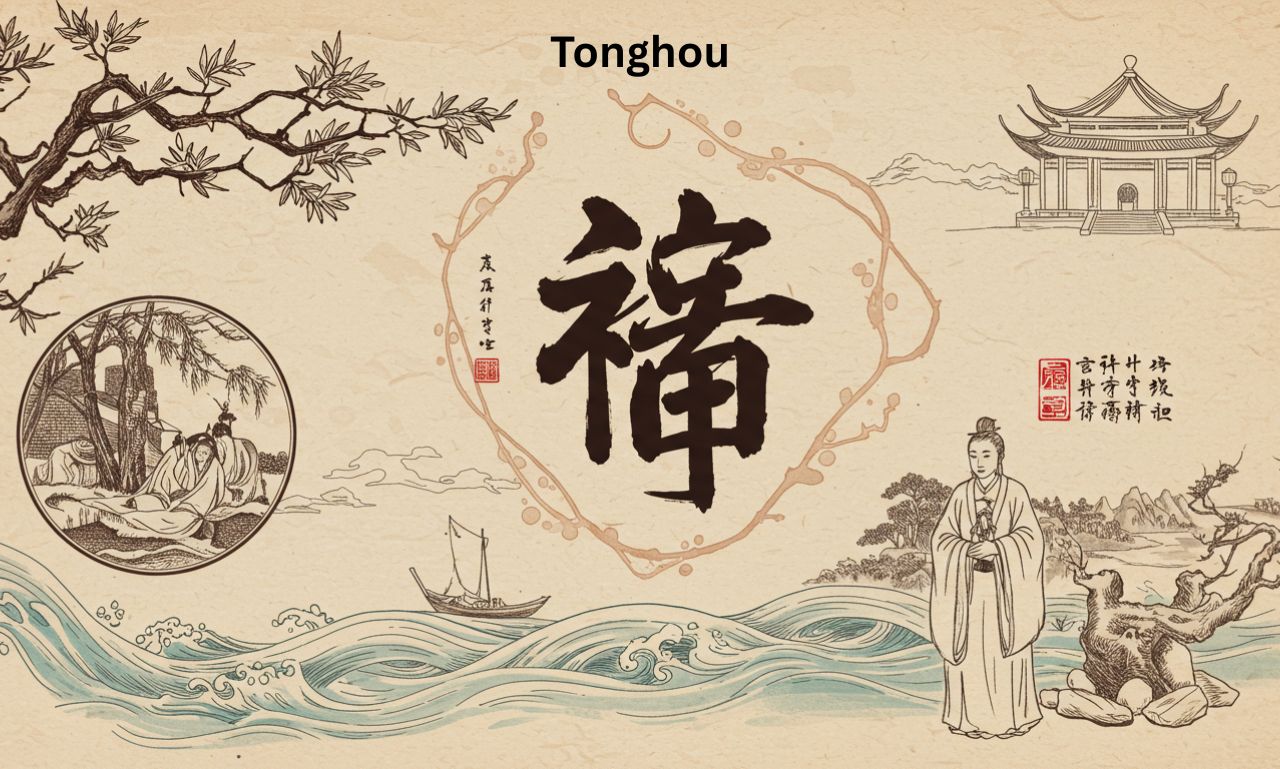More
Income Made Smart: A Guide to Maximizing Your Financial Potential

Income Made Smart: The world of smart earning, where every dollar has the potential to work harder for you. Whether you’re just starting your financial journey or looking to enhance your existing strategies, understanding how to maximize your income is essential. In today’s fast-paced economy, making informed decisions can lead not only to financial stability but also pave the way toward long-term wealth and security.
Imagine transforming your current financial situation into a thriving portfolio that grows year after year. With a few strategic steps and some dedication, achieving this dream can be within reach. This guide will walk you through various methods and insights designed specifically for those eager to make their income work smarter—not harder. Get ready to dive deep into effective practices that will empower you on your path toward greater financial freedom!
Understanding Your Current Financial Situation
To maximize your income potential, start by assessing where you stand financially. Gather your financial statements and take a close look at your assets and liabilities.
Knowing what you own versus what you owe is key. This balance sheet reveals the real picture of your net worth.
Next, analyze your cash flow—track how much money comes in each month against how much goes out. Understanding this flow helps identify spending habits that might be holding you back.
Don’t forget to review any debts or obligations. Are they manageable? High-interest debts can drain resources quickly.
Consider other factors like credit scores and savings accounts. A good credit score opens doors for better loans while a healthy savings cushion adds security to unexpected events.
Each element contributes to understanding your current position in the financial landscape. Embrace this knowledge; it’s the first step toward smarter income management.
Setting SMART Financial Goals: Income Made Smart
Setting SMART financial goals can transform your approach to money management. The acronym stands for Specific, Measurable, Achievable, Relevant, and Time-bound.
Start with specificity. Instead of saying you want to save money, define how much exactly. For example, aim to save $5,000 for a down payment on a home.
Next is measurability. Track your progress regularly. This could be monthly check-ins that allow you to adjust spending habits as needed.
Ensure the goals are achievable; set targets that challenge but don’t overwhelm you. If saving $1 million feels daunting right now, focus on smaller milestones first.
Relevance is key too—align your financial ambitions with personal values or life plans.
Establish a timeline for each goal. Whether it’s six months or five years away doesn’t matter as long as it’s clear and realistic!
Increasing Your Income: Strategies and Tips
Increasing your income can be a game changer for financial stability. Start by evaluating your current skills. Consider taking courses or certifications to boost your expertise and marketability.
Networking plays a crucial role too. Attend industry events, join professional groups, and connect with like-minded individuals online. These relationships can open doors to job opportunities or collaborations that enhance your earnings.
If you’re employed, don’t shy away from discussing salary increases with your employer. Prepare solid reasons showcasing your contributions and the value you bring to the team.
Exploring side hustles is another effective strategy. Freelancing in areas like writing, graphic design, or consulting allows you to leverage existing talents while earning additional income.
Consider passive income streams such as rental properties or dividend stocks. They require an initial investment but can yield significant returns over time without constant effort.
Managing Expenses and Saving Money: Income Made Smart
Managing expenses is a crucial step toward financial freedom. Start by tracking every dollar you spend. Use apps or simple spreadsheets to see where your money goes.
Identify non-essential items that can be cut from your budget. These small adjustments can lead to significant savings over time.
Consider adopting the 50/30/20 rule for budgeting: allocate 50% of your income to needs, 30% to wants, and save 20%. This method keeps spending in check while ensuring you’re saving consistently.
Automate your savings by setting up direct deposits into a separate account. Out of sight, out of mind—this trick helps prevent impulse spending.
Review subscriptions and memberships regularly. Cancel what you no longer use or need; it’s an easy way to free up extra cash each month.
Investing for Long-Term Growth: Income Made Smart
Investing for long-term growth is about patience and strategy. It’s not just a sprint; it’s a marathon that requires careful planning.
Start by selecting assets that have the potential to appreciate over time. Stocks, mutual funds, and real estate can be solid choices. Diversifying your portfolio helps spread risk while maximizing gains.
Consider dollar-cost averaging as a way to invest consistently over time. This method reduces the impact of market volatility on your overall investment.
Focus on companies with strong fundamentals—those with stable earnings, robust cash flow, and sound management practices tend to perform better in the long run.
Don’t shy away from reinvesting dividends or interest earned back into your investments. Compounding can significantly boost your wealth over the years.
Remember, staying informed about market trends and economic shifts will help you adjust strategies when necessary without panicking during downturns.
Income Made Smart: Creating Multiple Streams of Income
Creating multiple streams of income is a smart way to enhance your financial stability. Relying on just one source can be risky, especially in uncertain times.
Consider diversifying your earnings through side hustles. Freelancing, consulting, or even selling handmade products online are excellent options. Each additional stream not only boosts your income but also sparks new opportunities for growth.
Investing in real estate can serve as another avenue. Rental properties provide consistent cash flow while building equity over time.
Don’t overlook passive income sources like dividend stocks or peer-to-peer lending platforms. These require initial effort but can yield long-term returns with minimal maintenance.
Leverage existing skills by creating digital courses or writing eBooks. Share knowledge and earn money simultaneously—an effective win-win situation that capitalizes on what you already know!
Income Made Smart: The Importance of Constant Learning and Adaptation in Maximizing Income Potential
In the fast-paced world of finance, staying stagnant can be detrimental. Constant learning is essential for anyone looking to maximize their income potential. The landscape changes rapidly; new technologies and trends emerge continuously.
Embracing a mindset of lifelong learning enables you to adapt effectively. This could mean taking up online courses or attending workshops in your industry. Gaining fresh skills enhances your marketability and opens doors to better opportunities.
Additionally, adapting to economic shifts is crucial. Understanding market demands allows you to pivot quickly when needed. Whether it’s investing in stocks or exploring real estate, being informed keeps you ahead.
Networking also plays a big role in this process. Engaging with others who share your financial goals provides insights that may not be readily available otherwise. By fostering connections, you’re able to learn from diverse experiences and perspectives.
Integrating constant learning into your routine sets the stage for sustained financial growth.
Budgeting Basics: Gain Control of Your Finances
Budgeting is the cornerstone of financial control. It’s not just about crunching numbers; it’s about understanding your spending habits and making informed choices.
Start by tracking your income and expenses. Use apps or a simple spreadsheet to see where your money goes each month. This awareness can be eye-opening, revealing patterns you might want to change.
Next, categorize your expenses into needs and wants. Prioritize essentials like housing and groceries before allocating funds for entertainment or dining out.
Set limits in each category. Be realistic but firm with these boundaries. Adjust as necessary while keeping an eye on overall goals.
Review your budget regularly—monthly or quarterly—to ensure it reflects any changes in income or lifestyle. Small adjustments can lead to significant improvements over time, paving the way for better savings and investment opportunities down the line.
Saving Strategies for Every Stage of Life: Income Made Smart
Saving strategies evolve as life progresses. In your twenties, prioritize building an emergency fund. This safety net provides peace of mind and helps tackle unexpected expenses.
As you enter your thirties, consider retirement accounts like a 401(k) or IRA. The earlier you start saving for retirement, the more time your money has to grow through compounding interest.
In your forties and fifties, focus on maximizing contributions to both savings and investment accounts. Pay down debt while increasing investments; this dual approach prepares you for future needs.
When nearing retirement, shift towards preserving wealth rather than aggressive growth strategies. Evaluate income sources and ensure they align with projected living expenses in retirement.
Each stage offers unique opportunities for saving effectively. Adapting strategies ensures you’re always working toward financial security—regardless of where life takes you next.
Investing Wisely: Growing Your Wealth Over Time
Investing wisely is a cornerstone of building lasting wealth. The key lies in understanding the various investment vehicles available, from stocks and bonds to real estate and mutual funds.
Diversity is essential. A well-rounded portfolio spreads risk across different asset classes. This approach not only safeguards your investments but also opens doors for potential growth.
Time can be your best ally. Compounding returns magnify gains over time, making early investments particularly powerful. Even small contributions can lead to substantial wealth when left untouched.
Research matters too. Stay informed about market trends and economic indicators that affect your holdings. Knowledge empowers you to make decisions that align with your financial objectives.
Don’t let emotions dictate your choices. Stick to a clear strategy, even when markets fluctuate wildly, ensuring steady progress toward your goals while minimizing impulsive reactions based on fear or greed.
Earning More: Boost Your Income Through Side Hustles and Career Growth
Exploring side hustles can be a game-changer for your financial situation. They allow you to tap into your passions or skills while generating extra income. Whether it’s freelance writing, graphic design, or even pet sitting, the options are vast and varied.
Career growth is equally vital. Seek opportunities within your current workplace by asking for more responsibilities or pursuing promotions. Attend workshops and networking events to meet like-minded professionals who can open doors for you.
Don’t overlook online platforms that facilitate skill-sharing or gig opportunities. Websites dedicated to connecting freelancers with clients can help expand your reach and increase earnings.
Invest time in learning new skills relevant to rising industries; this not only enhances job security but also positions you favorably when seeking raises or advancements in pay. Embrace both approaches—side hustles and career enhancement—to maximize your income effectively.
Minimizing Taxes: Legal Ways to Keep More of What You Earn
Minimizing taxes is a smart way to maximize your income. Understanding tax deductions and credits can significantly lower your taxable income. Every dollar saved on taxes is a dollar added back into your pocket.
Contributions to retirement accounts, like 401(k)s or IRAs, not only help you save for the future but also reduce your current taxable income. It’s a win-win situation.
Consider itemizing deductions if they exceed the standard deduction threshold. Expenses such as mortgage interest, medical costs, and charitable donations could provide valuable savings.
Don’t overlook tax-loss harvesting when investing in stocks or funds. Selling underperforming investments allows you to offset gains elsewhere and lighten your overall tax burden.
Consulting with a financial advisor can unveil strategies tailored specifically for you. They stay updated on tax laws that may benefit your unique situation while ensuring compliance with legal requirements.
Protecting Your Assets: Insurance and Estate Planning
Protecting your assets requires a proactive approach. Insurance is one of the first lines of defense. Whether it’s health, home, or auto insurance, having adequate coverage can safeguard you against unexpected financial burdens.
But insurance alone isn’t enough. Estate planning plays a crucial role in asset protection. It ensures that your wealth is distributed according to your wishes after you’re gone. A well-structured estate plan includes wills and trusts to minimize taxes and avoid probate delays.
Consider consulting with an estate planner or attorney who specializes in this field. They can help tailor strategies suited to your needs.
Additionally, regularly reviewing both your insurance policies and estate plans keeps them aligned with life changes—marriage, children, or career shifts may necessitate adjustments for optimal security.
By taking these steps now, you lay a solid foundation for protecting what you’ve worked hard to build.
Achieving Financial Freedom: Practical Steps to Reach Your Goals
Achieving financial freedom starts with a clear vision of what that means for you. It’s about defining your goals and understanding the lifestyle you want to create.
Begin by assessing your income, savings, and debts. Knowing where you stand will help in crafting a roadmap toward financial independence. Prioritize debt elimination; higher interest debts can hinder progress significantly.
Next, focus on building an emergency fund. This safety net provides security and peace of mind during uncertain times. Aim for at least three to six months’ worth of living expenses.
Explore investment opportunities tailored to your risk tolerance and time horizon. Investing wisely can grow your wealth exponentially over time.
Stay committed to continuous learning about personal finance strategies and market trends. Knowledge is power when it comes to making informed decisions for a prosperous future.
Avoiding Common Money Mistakes: Learn from Others’ Experiences
Money mistakes can be costly, but learning from others’ experiences can pave the way for smarter decisions. Many individuals overlook budgeting, believing they can manage expenses intuitively. This often leads to unplanned debt and financial stress.
Another common pitfall involves neglecting emergency savings. Life is unpredictable; having a safety net protects against unforeseen costs like medical emergencies or job loss.
Investing blindly without research is another frequent error. Each investment carries risks that deserve careful consideration. Understand what you’re putting your money into before diving in.
People also tend to ignore the power of compound interest by waiting too long to start saving. The earlier you invest, the more your money grows over time.
Failing to review credit reports regularly can lead to missed errors and reduced scores. Being proactive about your finances helps avoid these pitfalls and sets you on a better path toward financial success.
The Psychology of Money: Overcome Mental Barriers to Financial Success
Our relationship with money often stems from deep-seated beliefs and experiences. These mental barriers can hinder financial growth. Identifying these beliefs is the first step toward overcoming them.
Many people associate wealth with greed or selfishness, leading to self-sabotage. It’s crucial to reframe this mindset. Wealth can empower us to make positive changes in our lives and the lives of others.
Fear also plays a significant role in financial decisions. The fear of failure can keep individuals from taking necessary risks, like investing or starting a business. Embracing calculated risk-taking can be liberating.
Moreover, societal pressures shape our views on success and wealth. Understanding that everyone’s path is unique helps diminish feelings of inadequacy when comparing oneself to others.
Practicing gratitude for what we have cultivates a healthier perspective on finances, paving the way for better decision-making and increased confidence in managing money matters.
Passing on Wealth: Leaving a Legacy for Future Generations
Building wealth isn’t just about personal gain. It’s also about what you leave behind for future generations.
Consider how your financial habits and decisions today can shape the lives of those who come after you. Teaching children and grandchildren about money management is crucial. They will benefit from understanding saving, investing, and responsible spending.
Creating a clear estate plan ensures your assets are distributed according to your wishes. This includes wills, trusts, and designating beneficiaries on accounts.
Philanthropy can also play a role in leaving a legacy. Supporting causes that matter to you not only impacts society but also teaches younger generations the value of giving back.
Remember that wealth isn’t solely measured in dollars; it encompasses values, ethics, and knowledge passed down through family stories and experiences. These elements create lasting impressions far beyond material possessions.
Conclusion: Taking Control of Your Finances and Building a Successful Future
Income Made Smart: Taking control of your finances is a journey, not a destination. It requires consistent effort and a willingness to adapt as life changes.
By implementing effective strategies, you can build a solid foundation for your financial future. Each small step adds up over time. Whether it’s setting goals or managing expenses, every action counts.
Investing in yourself through education and skills development will pay dividends later on. Embrace the challenges; they often lead to growth.
Remember that financial freedom isn’t just about accumulating wealth; it’s also about making informed decisions that align with your values and aspirations. Stay curious and keep learning—this mindset will open doors you never knew existed.
Your path may be unique, but the principles of smart income management apply universally. Commit to continuous improvement, and watch how it transforms not just your bank account but also your overall quality of life.
FAQs About Income Made Smart
Addressing common questions can help clarify your journey to financial empowerment. Here are some frequently asked questions about maximizing income potential:
What does “Income Made Smart” mean?
It refers to the strategic approach of managing, increasing, and investing your income effectively. It combines practical financial strategies with smart decision-making.
How do I assess my current financial situation?
Start by reviewing your income, expenses, debts, and savings. Create a clear picture of where you stand financially before making any changes.
What are SMART goals in finance?
SMART stands for Specific, Measurable, Achievable, Relevant, and Time-bound. Setting these types of goals helps create a focused path toward achieving your financial aspirations.
Can anyone increase their income?
Yes! With the right mindset and strategies such as pursuing side hustles or seeking promotions at work, anyone can find ways to boost their earnings.
How important is budgeting in personal finance?
Budgeting is essential; it allows you to track spending and savings systematically. It empowers you to make informed decisions about how money flows in and out of your life.
By addressing these FAQs along with thorough exploration across various topics outlined above—anyone can take actionable steps towards mastering their finances through smart choices that maximize their earning potential.
FOR FURTHER INFORMATION VISIT: FITBUFF.COM
More
Tonghou: Exploring the Meaning, Significance, and Cultural Impact

The term Tonghou may be unfamiliar to some, but it holds layered significance depending on the context in which it is used. From historical references to modern interpretations, Tonghou can relate to geography, culture, names, or institutions, particularly in East Asian contexts. Understanding what Tonghou means and where it appears can offer insight into both its cultural depth and practical relevance in today’s global landscape.
In this article, we explore the various meanings and uses of Tonghou, including its linguistic roots, geographic associations, potential cultural impact, and how it’s interpreted in different sectors.
What Is Tonghou?
The word Tonghou can serve multiple roles, depending on linguistic and regional context. In Chinese, “Tong” (通) often denotes communication, connectivity, or passage, while “Hou” (候) can mean to wait, expect, or refer to a noble rank. When combined, Tonghou might be interpreted as a proper noun, a place name, or a surname.
Alternatively, Tonghou could be transliterated from local dialects or used as a brand name, organization title, or institution, reflecting a mix of modern innovation and traditional influence. While there is no universally accepted definition, its usage reveals a pattern of importance in cultural, historical, and geographical contexts.
Historical and Geographical Relevance of Tonghou
1. Tonghou in East Asian Geography
In some regions, Tonghou refers to a specific location, such as a town, river, or administrative division. For example, Tonghou River or Tonghou Township may appear on maps in Taiwan or Mainland China, often associated with natural landmarks or historical trade routes.
These areas often bear the name due to their strategic importance — as transit routes or communication hubs — aligning with the meaning of “通” (passage or access). Such names typically reflect the region’s historical roles in commerce, governance, or military movements.
2. Tonghou as a Surname
Though less common, Tong–hou may also appear as a compound surname or given name in Chinese or Vietnamese culture. In these cases, the name could carry philosophical or aspirational meaning, often associated with virtues like patience, connectivity, or leadership.
Modern Usage and Cultural Significance of Tonghou
1. Tonghou as a Brand or Organization
In recent years, Tong-hou has also been adopted as a company or brand name across sectors such as technology, logistics, education, and manufacturing. The appeal lies in the characters’ positive connotations:
-
“Tong” (通): Implying connectivity, integration, and efficiency
-
“Hou” (候): Suggesting precision, strategy, and patience
Companies with names like Tong-hou Logistics or Tonghou Education Group may aim to project reliability, communication efficiency, and future-oriented thinking. This makes the name valuable in branding strategies focused on innovation and trustworthiness.
2. Tonghou in Philosophy and Literature
Some literary interpretations use Tong-hou to represent harmony between time (waiting or expecting) and action (communication or movement). In philosophical texts or poems, these dual meanings offer a metaphorical perspective on life balance, strategic thinking, or even political governance.
While rare in mainstream literature, niche publications, essays, and traditional poetry occasionally reference Tonghou as a symbolic idea — a balance of movement and stillness, readiness and response.
Tonghou and Digital Presence
1. Domain Names and Online Identity
With globalization and digital branding, unique terms like Tong-hou have become desirable for domain names and online platforms. Businesses, artists, and content creators may register tonghou.com or similar domains to establish a distinct digital identity.
The uniqueness of the name allows for stronger search engine visibility and easier brand recognition. In an internet space saturated with generic names, “Tonghou” offers linguistic distinctiveness and cultural nuance.
2. Social Media and Content Creation
Creators in fields like education, traditional arts, or Chinese history may adopt Tong-hou as a social media handle or brand name. It can symbolize a connection between the past and the present — a nod to cultural roots while engaging with modern audiences.
Interpreting Tonghou Through Language
1. Linguistic Variations
Depending on tonal pronunciation and character selection, Tong-hou can take on different meanings in Mandarin or Cantonese. For example:
-
通候 (Tōnghòu): Could imply “waiting for communication” or “channel of waiting”
-
同厚 (Tónghòu): May refer to “equal generosity” or “shared kindness”
Understanding these variations is important for interpreting the term in cultural, poetic, or business contexts.
2. Cross-Cultural Influence
As more East Asian words and concepts enter the global lexicon, names like Tong-hou may be embraced internationally. They offer a blend of tradition and versatility, which appeals to multicultural businesses or art communities seeking symbolic resonance.
Ethical and Cultural Considerations
Using or referencing Tonghou in content, branding, or public discourse comes with a responsibility to understand its cultural implications. Misuse or superficial adoption without respect for its roots can lead to misrepresentation or cultural dilution.
When naming a company or project Tong-hou, it is respectful to research the origin, consult native speakers, or understand how it may be perceived by different cultural audiences.
Conclusion
Tonghou is a multifaceted term with deep linguistic, geographical, and cultural layers. Whether seen as a place name, a personal name, or a brand identity, it reflects core values like communication, patience, and connectivity. In both historical and modern contexts, Tong-hou remains relevant and thought-provoking.
As globalization continues to bring diverse terms into wider usage, understanding concepts like Tong-hou becomes essential. It’s more than just a name — it’s a reflection of cultural identity, philosophical thinking, and modern branding potential.
More
iofbodies.com Ethics: Responsibility and Content Integrity

In today’s fast-moving digital landscape, questions about content authenticity, privacy, and ethical standards are more important than ever. iofbodies.com ethics has become a topic of growing concern as users, critics, and observers evaluate the platform’s approach to sensitive content and its impact on the broader digital community. With the rise of user-generated material, online identities, and data-driven platforms, understanding how iofbodies.com navigates ethics is essential for both users and content creators.
This article explores the ethical implications of iofbodies.com, its practices, user responsibilities, and the wider conversation about digital ethics in the modern age.
What Is iofbodies.com?
iofbodies.com is an online platform known for its visual content, particularly related to human forms, artistic, and body diversity. While some celebrate it as a space for self-expression and raw, unfiltered human imagery, others raise concerns about iofbodies.com ethics, especially in relation to content consent, moderation practices, and its impact on users.
The platform presents a mixture of curated and user-submitted material, blurring the lines between artistic intention and voyeurism. This complexity makes it essential to analyze iofbodies.com ethics through various lenses: legal, cultural, and human-centered.
Core Ethical Issues Surrounding iofbodies.com
1. Consent and Privacy
One of the primary concerns surrounding iofbodies.com ethics is consent. Are all images and content submitted with full, informed consent? Does the platform verify that subjects have agreed to the public use of their images? The challenge here lies in ensuring that privacy and autonomy are not compromised in the pursuit of edgy or provocative content.
Without strong verification processes, platforms risk showcasing content that may infringe on individual rights, creating ethical and possibly legal issues.
2. Content Moderation and Responsibility
While freedom of expression is fundamental, it must be balanced with responsibility. Users expect platforms to protect against abusive, exploitative, or harmful content. Iofbodies.com ethics is called into question if there are inadequate moderation policies in place.
Important considerations include:
-
Are minors protected?
-
Is there a mechanism for reporting and removing offensive or unauthorized content?
-
Does the platform distinguish between artistic expression and potentially harmful material?
These are essential components in determining whether a platform is ethically sound.
Transparency in Platform Policies
Transparency is a critical marker of ethical credibility. For iofbodies.com ethics to be considered robust, the platform should clearly communicate its terms of use, content guidelines, and privacy policies. Users must understand:
-
How their data is used
-
Who owns the content once it’s uploaded
-
What rights they retain over their submitted media
Lack of clarity in these areas may open the door to ethical violations, particularly in cases where users unknowingly give up rights or are unaware of how their data is handled.
The Role of Community and User Behavior
A digital platform’s ethics are not defined solely by its administrators but also by its community. User behavior, including how people interact with content and each other, shapes the ethical landscape.
Key aspects include:
-
Respectful commentary and interaction
-
Reporting inappropriate behavior
-
Upholding standards for dignity and consent
Iofbodies.com ethics must encourage a culture of respect, where users are not just passive observers but active participants in maintaining a safe and ethical environment.
Cultural and Social Implications
1. Representation and Inclusivity
One ethical strength of iofbodies.com, according to some, is its focus on body diversity and inclusive representation. In a world dominated by curated beauty standards, the platform’s raw and unfiltered aesthetic can empower users by showcasing real bodies without airbrushing or manipulation.
However, this intention must be matched with ethical execution. Tokenism, selective representation, or lack of diversity in moderation teams can undermine this goal.
2. Mental Health Considerations
Exposing users to a wide range of body images and intimate content may trigger emotional responses — both positive and negative. Platforms must be mindful of the mental health impact, offering tools such as content warnings, opt-out filters, or resources for those struggling with body image issues.
Part of iofbodies.com ethics involves recognizing the psychological effects of its content and taking proactive steps to mitigate harm.
Legal vs. Ethical: Where the Line Gets Blurry
It’s essential to distinguish between legal compliance and ethical responsibility. Just because a platform operates within legal boundaries does not necessarily mean its practices are ethical. Iofbodies.com ethics must address:
-
The gap between law and morality
-
Global standards vs. regional laws (what’s legal in one country may not be in another)
-
User expectations versus technical enforcement
Ethics often ask for more than what is merely legal — they demand fairness, respect, and accountability.
Recommendations for Strengthening iofbodies.com Ethics
To build a stronger ethical framework, iofbodies.com could consider the following:
-
Implement Consent Verification Tools
Use digital tools to confirm consent from all parties before publishing content. -
Enhance Moderation Systems
Employ AI and human moderation to review sensitive content, ensuring compliance with ethical standards. -
Create Clear Content Guidelines
Define what is considered artistic, what is not allowed, and what boundaries exist. -
Foster an Educated User Base
Educate users on digital rights, privacy, and responsible content sharing. -
Offer Opt-Out and Deletion Requests
Give users more control over their content and data, including the right to be forgotten.
By following these practices, iofbodies.com ethics could be elevated, aligning with global standards of digital accountability.
Conclusion: The Ethical Path Forward
As platforms like iofbodies.com grow in popularity and influence, their ethical responsibilities become even more significant. Ethics in the digital age go beyond technical operation — they reflect how platforms respect human dignity, privacy, and agency. While there are positive aspects to the platform’s mission, the questions around iofbodies.com ethics remain crucial for its future credibility.
Transparency, accountability, and community engagement are key to shaping a digital space that not only pushes artistic boundaries but does so with integrity. Whether you’re a user, creator, or observer, being informed about these ethical dimensions is essential in navigating today’s digital platforms responsibly.
More
G360VN: Empowering Digital Transformation in Vietnam

G360VN is emerging as a dynamic digital platform focused on enabling businesses, organizations, and individuals to adapt to the rapidly evolving digital economy in Vietnam. With a name that suggests “360-degree” solutions and a regional focus (“VN” for Vietnam), G360VN offers a full-circle approach to digital transformation—from cloud services and IT consulting to e-commerce and digital marketing tools.
The Vision Behind G360VN
Bridging Local Business with Global Technology
The core mission of G360VN is to equip Vietnamese enterprises with world-class digital capabilities while keeping the local market context in focus. By offering adaptable and scalable tech solutions, G360VN helps small and medium-sized businesses compete in both local and international markets.
Support for the Vietnamese Tech Ecosystem
Vietnam’s digital economy is growing rapidly, and G360VN is playing a supportive role by empowering startups, SMEs, and corporate clients with innovative tech services. Whether it’s digitizing customer service or launching new digital products, G360VN positions itself as a trusted partner.
Key Services Offered by G360VN
1. Web and App Development
G360VN provides custom web and mobile application development tailored to industry-specific needs. These applications help businesses increase user engagement, automate internal processes, and generate higher ROI.
2. Cloud and IT Infrastructure
Modern businesses need agile IT environments. G360VN offers cloud computing services, hosting solutions, and server maintenance that ensure scalability, security, and speed.
3. Digital Marketing Solutions
The platform integrates SEO, content marketing, social media management, and paid advertising services to help brands gain visibility and convert leads effectively in Vietnam’s competitive digital space.
4. E-Commerce Support
As e-commerce thrives in Southeast Asia, G360VN assists retailers and entrepreneurs in building online stores, payment gateways, logistics integrations, and product management systems.
Why G360VN Is Gaining Popularity
Tailored for Vietnam’s Market
While many global tech platforms provide digital tools, G360VN tailors its services for Vietnamese language, consumer behavior, and business laws. This makes the platform uniquely effective for local enterprises.
Cost-Effective Solutions
G360-VN understands the limitations of local startups and SMEs. That’s why they offer affordable packages that don’t compromise on quality, helping more businesses go digital without excessive investment.
Expert Team and Local Insight
With a team of Vietnamese developers, designers, and digital strategists, G360VN bridges the gap between tech innovation and cultural relevance. Their local expertise ensures that solutions are user-friendly and effective.
Success Stories and Case Studies
Supporting Retailers During COVID-19
When the COVID-19 pandemic disrupted traditional retail, G360VN helped hundreds of small vendors create e-commerce platforms and online payment systems, allowing them to continue serving customers remotely.
Enhancing Educational Platforms
In the education sector, G360-VN has collaborated with schools and training centers to create learning management systems (LMS), video conferencing tools, and mobile learning apps—improving access to quality education online.
G360VN and the Future of Digital Vietnam
Contributing to National Digital Goals
Vietnam’s government has ambitious goals for digital transformation by 2030, and platforms like G360-VN are vital to achieving them. The company’s efforts align with national priorities such as:
-
Expanding digital infrastructure
-
Promoting digital skills
-
Enhancing cybersecurity
-
Encouraging smart business models
AI and Future Technologies
Looking ahead, G360-VN is exploring AI, machine learning, and automation. These technologies will allow clients to optimize operations and make data-driven decisions faster than ever before.
How to Get Started with G360VN
Simple Onboarding
G360-VN offers a streamlined onboarding process where businesses can request consultations, evaluate service packages, and begin their digital journey within days.
Training and Support
One of the standout features is G360-VN’s post-implementation support. Clients receive training, help-desk access, and regular system updates to ensure long-term success.
Conclusion: A Platform Built for Vietnam’s Digital Leap
As Vietnam’s digital landscape accelerates, G360VN stands out as a reliable, forward-thinking platform dedicated to enabling business growth through technology. Whether you’re a startup, an educator, or a well-established firm looking to go digital, G360VN offers the tools, support, and expertise needed to thrive in the digital economy.
-

 Entertainment1 year ago
Entertainment1 year agoYoungTube 101: Tapping the Youthful Side of Online Video
-

 Pet2 years ago
Pet2 years agoDog Training Tips: Throw me a bone, will you?
-

 Entertainment2 years ago
Entertainment2 years ago4 Reasons Why She Doesn’t Call You Back
-

 Fitness1 year ago
Fitness1 year agoThe Allure of Sports T-Shirts: A Blend of Style and Team Spirit:
-

 Fitness2 years ago
Fitness2 years agoTotal Mind and Body Fitness Blog Carnival 165
-

 Fitness2 years ago
Fitness2 years agoTotal Mind and Body Fitness Blog Carnival 141
-

 Health2 years ago
Health2 years agoWhat Is Healthy?
-

 Pet1 year ago
Pet1 year agoPet Supplies Plus: A Complete Guide to Pet Health
